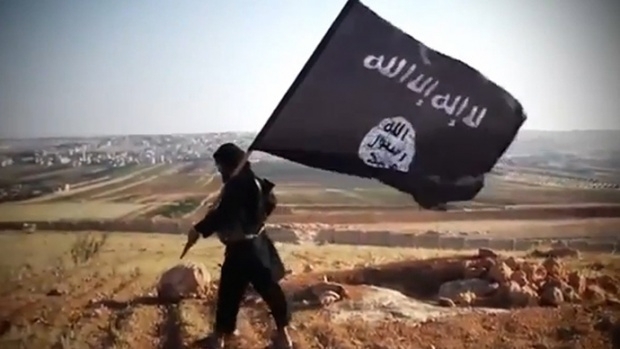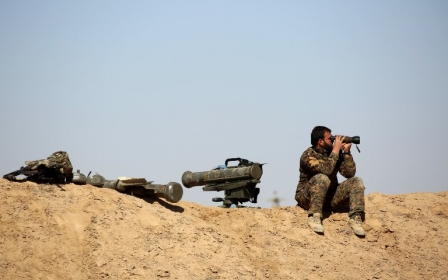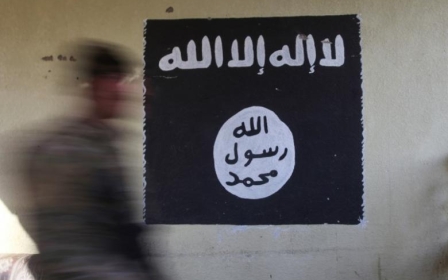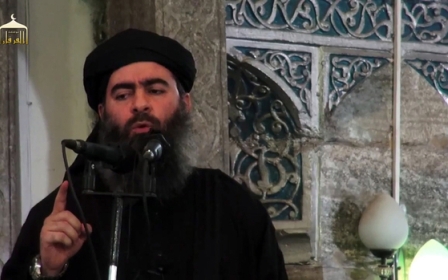Islamic State's chief cleric killed in Syria air strike

The US-led coalition fighting the Islamic State (IS) group confirmed in a statement on Tuesday that it killed Turki al-Binali, the group's self-proclaimed “Grand Mufti” or chief cleric, in an air strike in Syria on May 31.
"Coalition forces killed Turki Binali, the self-proclaimed 'Grand Mufti' or chief cleric of ISIS in an air strike May 31 in Mayadeen, Syria," the coalition said in a statement, using an Arabic acronym for the militant group.
Binali, who is from Bahrain, was one of IS's most visible preachers and appeared regularly in its propaganda videos. He was placed under US sanctions for helping the group recruit foreign fighters, according to the US Treasury.
He was also listed under UN sanctions, which described him as having been chosen as IS's "chief religious advisor" in 2014.
He served as head of IS's religious compliance police and a recruiter of foreign fighters, according to the UN listing.
He was killed in a strike that came days after another US-led coalition air raid on Mayadeen that reportedly killed the founder of IS's notorious Amaq propaganda agency.
The May 29 strike killed Rayan Mashaal, also known as Baraa Kadek, according to local Syrian activists, though the coalition has not yet confirmed that.
Reports of Binali's death had circulated earlier this month, but there was no official confirmation until the statement.
It described Binali as "a close confidant" of IS leader Abu Bakr al-Baghdadi, and said he "had a central role in recruiting foreign terrorist fighters and provoking terrorist attacks around the world". He authored a biography of Baghdadi in 2013.
IS confirmed the death of Binali - who was also known as Abu Humam al-Athari, Abu Sufyan al-Salim and Abu Hudhayfah al-Bahraini - earlier this month.
He had previously served as an IS leader in the Libyan city of Sirtre, according to reports. He then appeared in Raqqa in 2015.
Earlier in his life, he was reportedly the imam of a mosque in the Muharraq market area in Bahrain before being dismissed because of his extremist views.
In 2015, Bahrain's Ministry of Interior revoked his citizenship.
New MEE newsletter: Jerusalem Dispatch
Sign up to get the latest insights and analysis on Israel-Palestine, alongside Turkey Unpacked and other MEE newsletters
Middle East Eye delivers independent and unrivalled coverage and analysis of the Middle East, North Africa and beyond. To learn more about republishing this content and the associated fees, please fill out this form. More about MEE can be found here.




